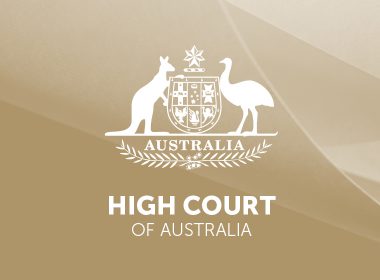Key decisions
- Deputy Commissioner of Taxation v Shi [2021] HCA 22
- Chetcuti v Commonwealth of Australia [2021] HCA 25
Evidence
Privilege against self-incrimination
In Deputy Commissioner of Taxation v Shi [2021] HCA 22 (4 August 2021) the High Court was required to determine whether a judge of the Federal Court of Australia (being Steward J before his elevation to the High Court) erred in refusing to order that a privilege affidavit, sworn by the respondent (‘Shi’), be filed and served on the appellant (‘Commissioner’) pursuant to s 128A(6) of the Evidence Act 1995 (Cth) (‘Evidence Act’).
The Commissioner had obtained ex parte orders in the Federal Court of Australia freezing Shi’s assets worldwide (‘Freezing Orders’). The Federal Court made ancillary orders requiring Shi to disclose the details of all of his worldwide assets (‘Disclosure Order’). Shi partly objected to complying with the Disclosure Order under s 128A of the Evidence Act, on the grounds that some of the information required to be disclosed may tend to incriminate him. Shi complied with the process set out in s 128A which included the preparation of an affidavit that contained the information required to be disclosed, but to which Shi objected to disclosure (‘Disclosure Affidavit’). Section 128A(6) of the Evidence Act creates an exception to the privilege against self-incrimination. Under s 128A(6) a Court may, nonetheless, make an order requiring the Disclosure Affidavit to be served on the other party if satisfied that:
- the information disclosed tends to prove that the relevant person is liable under Australian law;
- the information disclosed tends not to prove that the relevant person is liable under the law of a foreign country;
- the interests of justice require the information to be disclosed.
Steward J, at first instance, held that he was satisfied that the Privilege Affidavit tended to prove that Shi had committed an offence under Australian law, but considered that it was not in the interests of justice to disclose the privileged information because the Commissioner could otherwise obtain the information by exercising his compulsory examination powers under s 353-10 of Schedule 1 to the Taxation Administration Act 1953 (Cth). The Commissioner appealed unsuccessfully to the Full Court of the Federal Court (Lee and Stewart JJ, Davies J dissenting). The majority considered that the Commissioner bore the onus of proving the matters in s 128A(6)(a) and (b) of the Evidence Act. And, in respect of s 128A(6)(c), all of the judges of the Full Court considered that Steward J was wrong to take into account the Commissioner’s compulsory examination powers. But the majority upheld Shi’s notice of contention that the interests of justice did not require the disclosure of the Disclosure Affidavit because there were other ways in which the execution of the Freezing Order could have been assisted, such as the ability to examine a judgment debtor under s 108 of the Civil Procedure Act 2005 (NSW). Additionally Lee J considered that the derivative use immunity, in s 128A(8), would be difficult to enforce in the circumstances.


